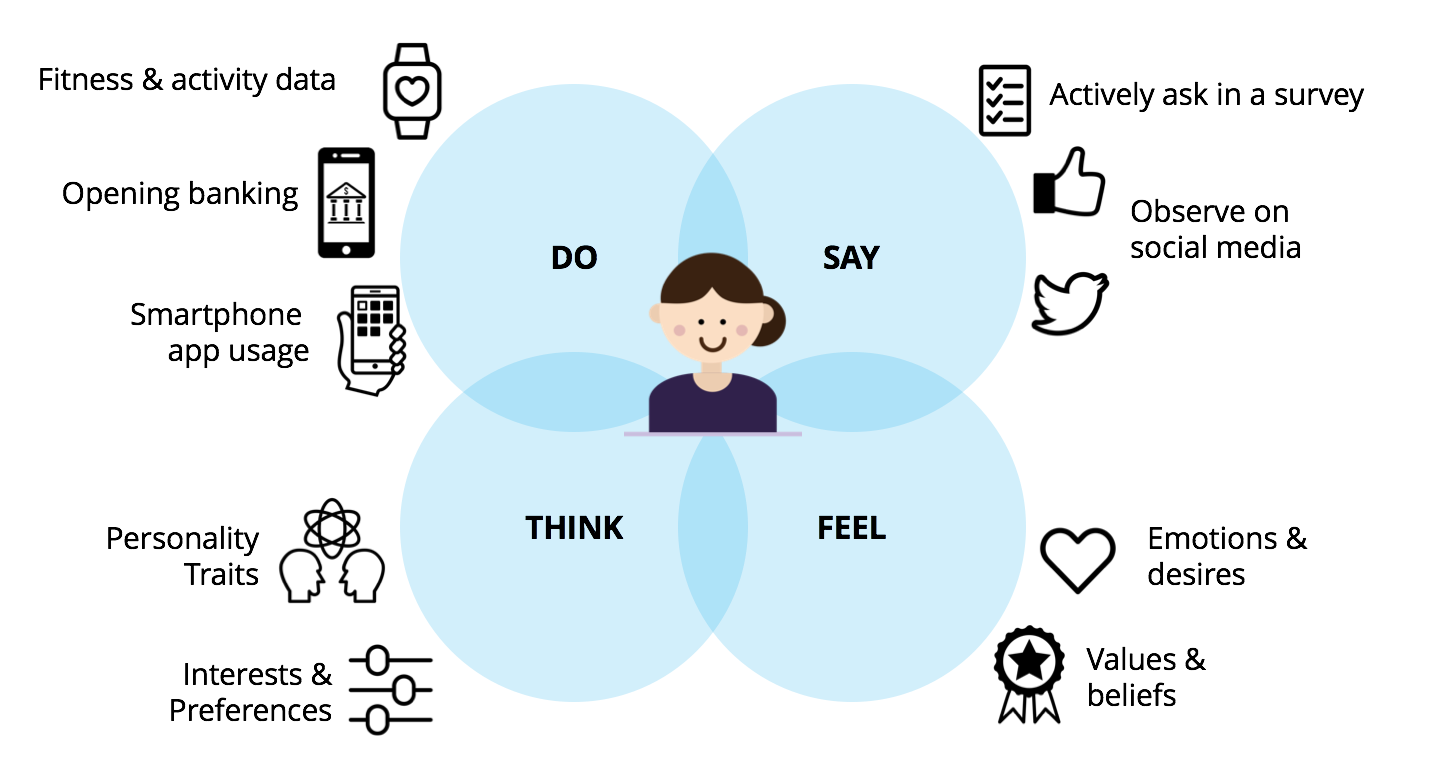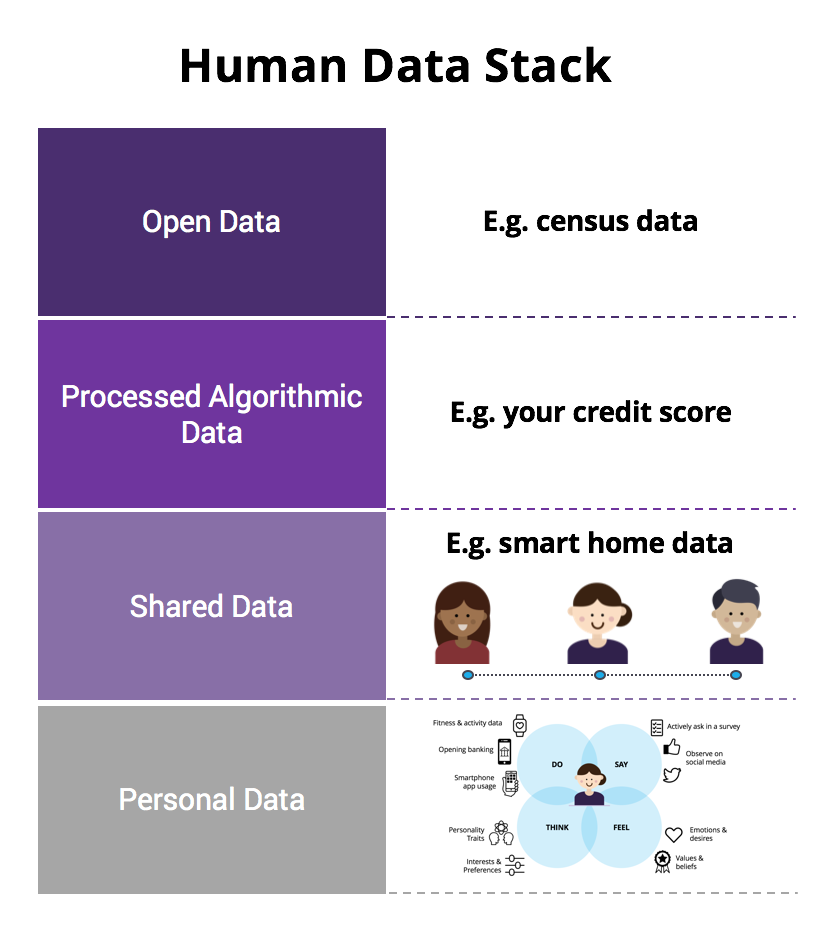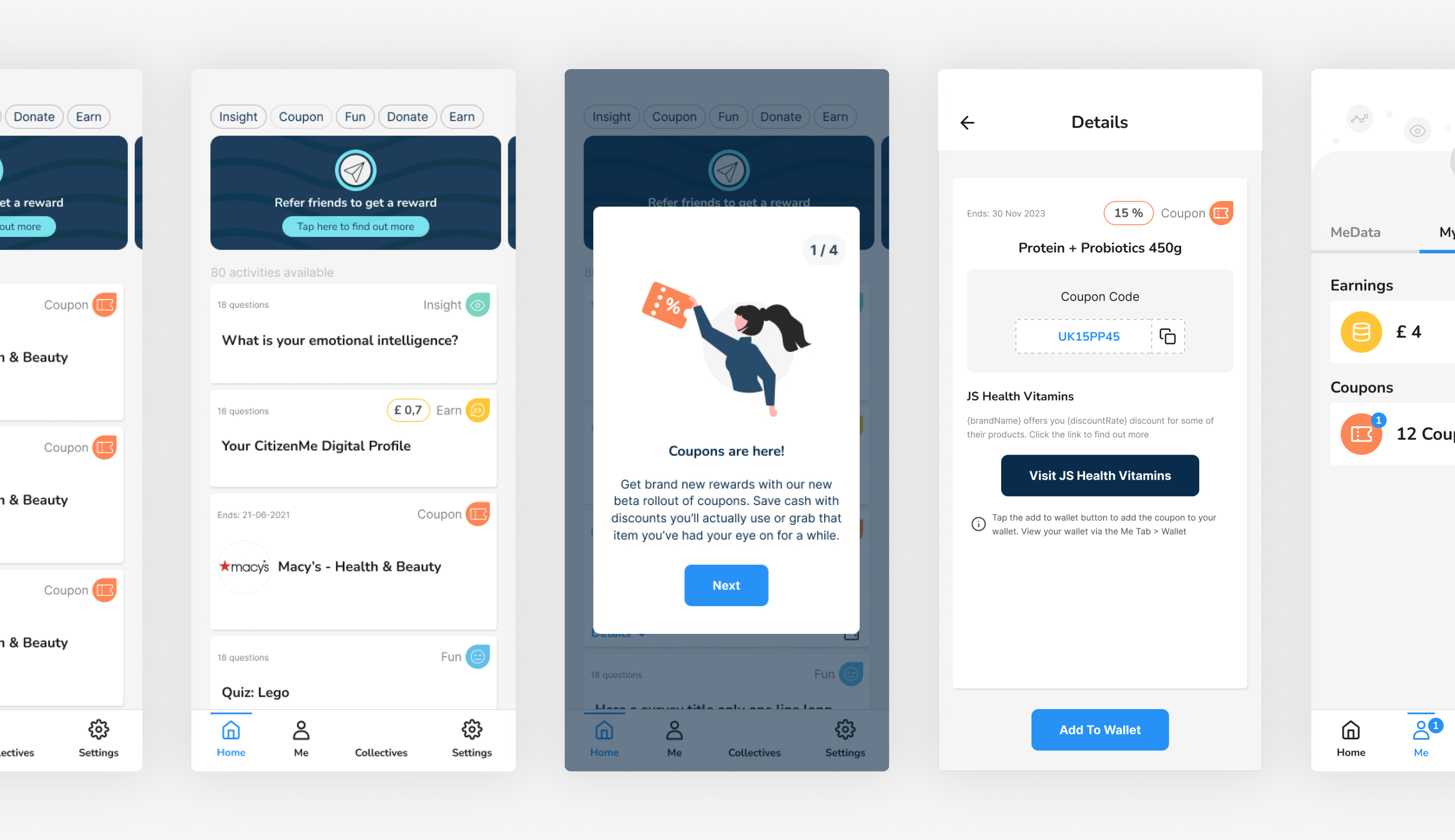
Human Data: What it is and why it is important?
Human Data: What it is and why it is important? https://www.citizenme.com/wp-content/uploads/2018/01/Personal-Data.png 1440 760 Ryan Garner Ryan Garner https://secure.gravatar.com/avatar/d5d774b86fa69dcb9315259eec6fc589?s=96&d=mm&r=gUnderstanding people, customers and citizens has never been more important. Our hyper-connected lives bring us closer to politics, entertainment, celebrity culture and businesses like never before. How we are influenced and who we trust is highly fragmented and distributed across our social networks and the digital platforms connecting us to one another. So how do we understand the customer in this digitally immersed and data rich world?
We need to use methods that put the people we’re looking to understand at the heart of data collection and analysis; a process that humanises data. Human data has three important characteristics, all of which need to be met. Without these characteristics, we run the risk of obtaining a distorted or skewed view of the individual.
Human Data: 3 key principles
1. Ethical
Having good data ethics isn’t just about being the right thing to do, it will soon be enforceable in the EU under the new GDPR. But what does it mean to source ethical data? There are three requirements for ethical data:
Identity
It may sound obvious, but to better understand people, those people need to exist. Currently none of us exist digitally. Sure we have Facebook and Twitter accounts but none of us exist outside of the platforms and services we use. To exist digitally we all need our own self-sovereign identities that exist independently of the digital services we use day to day.
Control
Once we exist we need to have control of our personal data and for that data to be associated with our own identity. Human data is created across different areas of our lives (banking, health, social media etc). It is also essential that a copy of this data is accessible to the individual. It’s likely that this would be facilitated by organisations working on behalf of the individual, companies like CitizenMe.
Consent
To have full control over your data means giving people the ability to provide consent (or not) over how their data is used, with whom and for how long. This is a core part of the GDPR but for it to be fully functional, improvements in transparency, automation and ease of use need to become more commonplace.
To be ethical with data means radically improving the customers position at the table in the digital marketplace. It’s about managing the flows of data between customers and businesses, where trust is acquired through a system that recognises the individual as a real entity with their own voice.
2. Integrated
In a thought piece on Disruption Hub, I talked about the need to stop thinking about data sources and start thinking about understanding the customer in an integrated and holistic way:
The business world today is data centric. Aligning products and services with what customers want and need is a common goal. However, there is still a lot of debate around the best data source to generate customer and market insights. A lot of the discussion focuses on the limitations of each method; big data vs. survey data, quantitative vs. qualitative. It’s time we transcended our areas of specialism and preference in order to recognise the power of integrated thinking.
Personal Data
Human data integrates personal data from multiple sources, around the customer not the organisation. This way we are able to get a better understanding of what people say, do, think and feel all in context.
 The diagram above is by no means comprehensive, but it illustrates the type of data we should be aiming to analyse. Each of these data points should be collected from the source using APIs and machine learning to process and automate real time insights about individuals. These kind of human insights are only possible by linking and layering data from multiple sources. This is another reason why the ethical sourcing of data (described above) is so important.
The diagram above is by no means comprehensive, but it illustrates the type of data we should be aiming to analyse. Each of these data points should be collected from the source using APIs and machine learning to process and automate real time insights about individuals. These kind of human insights are only possible by linking and layering data from multiple sources. This is another reason why the ethical sourcing of data (described above) is so important.
The Full Human Data Stack
However, Human Data is more than just personal data. We all exist in a connected world; so there is other data that relates to us but wouldn’t necessarily be considered as personal data.

The other forms of human data shown in the illustration above are:
- Shared Data. This is data that is created by a group of people. The clearest example of this is data created by the household. The growth of smart home devices such as smart meters, thermostats and home voice assistants create data around our shared living patterns, behaviours and preferences. How we co-exist in different social groups is extremely important, but largely forgotten about. This is because it’s easier to use the individual as the single unit of analysis.
- Processed Algorithmic Data. When we go about our day-to-day lives, our past behaviours are recorded and analysed to predict how we might behave in the future. For example, our credit score is created by a credit reference agency that syndicates data from the all the financial providers we have relationships with. Your credit score will determine the type of financial products we will be eligible for in the future. A credit score is a form of trust score, similar to your star ratings on popular platforms like Airbnb, Ebay and Uber. These trust ratings are personal to us but are also shared with the organisation and any other people trusting you as a buyer or seller of goods/services in the digital marketplace.
- Open Data. This is anonymised and aggregated data but provides insight on the socio and geo-demographic groups you belong to. With the open census data you can infer a lot about the cultural diversity of the neighbourhood you live in. Without open data this contextual understanding (how you fit into the world around you) would not be possible.
Human Data, therefore, is bigger than just one data source and is broader than just personal data. Human data accounts for data that defines us a person, but also data that contextualises our relationships with other people, organisations and society at large.
3. Valuable
Data, particularly personal data, is already recognised as being extraordinarily valuable. Indeed the valuations of many tech companies are based on the value they hold with their customers’ data.
This value is only sustainable if it is shared two ways, between the business and the customer. Value is a broad term and can mean things in different contexts. The obvious manifestation is monetary value. But just as important as this is the use of that data to help individuals better understand themselves, support their decision making and help them better manage their lives.
When data is shared with the customer, and has shared value, the very nature of the customer relationship is fundamentally changed. The opportunity to create disruptive new customer experiences and value propositions vastly improves. In fact, a lot of the customer insight can be done in real time as part of the customer engagement.
Human Data: doesn’t it already exist?
Not really. Not across all three data principles of being ethical, integrated and valuable.
Market research companies are probably the closest. They have historically been the independent intermediary for the consented exchange of information between individuals and businesses. The problem here is that they still largely use one source of data (for quantitative data they use surveys). When they link up with CRM systems or big centralised data, it is slow, full of compliance issues and provides no value to the individual. Furthermore, the value exchange for completing surveys is typically very poor. It is largely monetary but only pays out after accumulating a certain balance or jumping through a lot of administrative hoops.
The largest tech companies are also the largest data companies. GAFA (Google, Apple, Facebook, Amazon) are constantly improving the variety of data available to inform actionable business insights. What’s more they offer a lot of value in the services they offer to their customers. To better improve these services they are continually integrating their product portfolio and acquiring new businesses to get a richer 360 degree view of their customers/users. The inherent challenge with their business model is that they are centralised; therefore they only understand their customers by the interactions within their organisation. Centralised data makes it very difficult to access fully integrated customer data. With a centralised architecture the only way to gain data from outside the organisation is to buy it in from data brokers, which has real ethical issues and in most cases is not a true reflection of the human the data is based upon.
Data Brokers: The Data Dehumanisers
Data brokers are businesses largely unknown to customers, but they know an awful lot about us. They integrate data from multiple sources, but without transparency or consent from real people. Data brokers offer very little value to individuals other than credit referencing services. In fact, their big centralised architecture poses a risk to real people as we saw last year with Equifax’s huge data breach of 143 million consumers in the US. This is a huge privacy violation, especially as the consumer has no control over the information Equifax and other brokers store about them. The data brokering model has become redundant in a digital and data driven economy. The data they broker is the opposite of what we define as human data. The only way to fix the critical issues in data brokering is to flip their business model on its head and give back control to the individual.
The way our data is currently managed and used is not fit for purpose in a 21st century information economy. Making the shift to human data will benefit everyone, not just us as individuals but businesses too.
Update February 2024: A new company, DataSapien, has now been established to provide ‘Human Data’ solutions to Consumer Brands. It enables brands to embed Human Data Empowerment technology into their existing customer apps. If you’re a brand looking to enable your customers to participate directly with their data check out DataSapien.
- Posted In:
- Business blog
Ryan Garner
Ryan has provided insights to global brands, helping shape products and services around real customer needs. He has spent the past 3 years helping businesses think about the opportunities in the personal information economy. He now brings this experience to CitizenMe. As much as Ryan loves technology, he likes to escape by growing fruit and veg on an allotment with his kids. And if you have not already heard, Ryan is a very smug Leicester City supporter right now!
All stories by: Ryan Garner





Leave a Reply